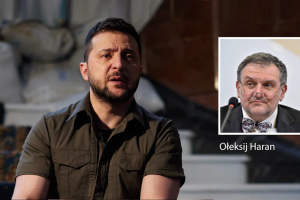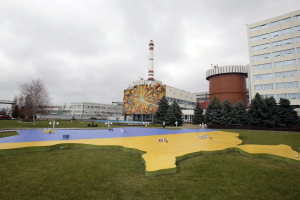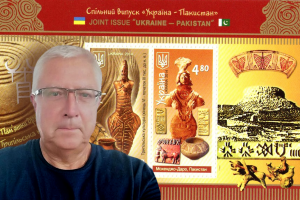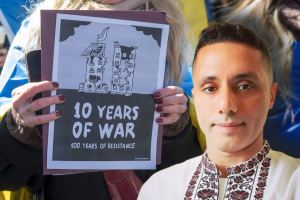Russia’s Return to the PACE: International Controversy and Ukrainian Elections

Aemin Becker,
Аnalyst,
Student of International Security at Sciences Po in Paris (France),
Intern at Ilko Kucheriv Democratic Initiatives Foundation
On Tuesday June 25th, 2019, the Council of Europe voted 118 in favor, 62 against, and 10 abstentions to reinstate Russia’s voting rights in the Parliamentary Assembly of the Council of Europe (PACE). These rights had been suspended since 2014 due to Russia’s illegal annexation of the Crimean Peninsula. The new PACE resolution stated that “The members’ rights to vote, to speak, and to be represented in the Assembly and its bodies shall not be suspended or withdrawn in the context of a challenge to or reconsideration of credentials.” The resolution also agreed to “blunt the assembly’s ability to impose sanctions similar to those on Russia in the future”.
Prior to the reinstatement of their voting rights, Russia had been threatening to leave PACE altogether. They had refused to pay their annual contribution of approximately 33 million euros [or ~7% of the Council of Europe’s budget] since 2017 and were threatening even laxer participation should they not have a chance to vote for the new Secretary General on June 26th.
In 2014, Russia annexed the Crimean Peninsula. Consequently, PACE stripped Russia of their right to vote in the assembly, participate and/or lead observer missions, and to have representation in the organization’s official bodies. The aim of this, plus subsequent sanctions was to push Russia to observe the norms of international law regarding Crimea and Donbas. As has been made abundantly clear since then, this did not work.
There are two sides to this issue; those that supported reinstating Russia and those that did not.
Those that support reinstating Russia are led by Germany and France. Their argument consists of the importance of allowing Russian citizens to continue having access to the European Court of Human Rights – an important point that does merit consideration, as the majority of complaints brought before the court come from Russian citizens. If Russia were to leave PACE, their citizens would no longer have access to the European Court of Human Rights, which therefore would remove a lot of human rights protections that Russian citizens currently have as citizens of a country that is a party to the European Convention on Human Rights.
Another argument, coming from France’s Secretary of State for European Affairs Amelie de Montchalin, states that the Council of Europe is not the appropriate battlefield to bring Russia to task for their actions in Crimea and in Ukraine in general. To de Montchalin, the Council of Europe is “a place to defend human rights”, not a place for “geopolitics”.
By ensuring that Russia continues to be a full member of the Council of Europe, France, Germany, and others hope to ensure that Russia is brought to task for human rights violations within the country. This, of course, won’t be possible without actual enforcement by the Council of Europe of their rulings in line with Article 46 regarding the non-implementation of decisions by the European Court of Human Rights. Efforts of Council of Europe Member States to place pressure on Russia to observe rulings regarding human rights violations would also be important in ensuring the effectiveness of this action.
Those against the reinstatement of Russia, in addition to Ukraine, include Estonia, Georgia, Latvia, Lithuania, Poland, and Slovakia. To these countries, Russia didn’t meet a single requirement to merit rejoining the Council of Europe; Moscow still occupies the Crimean Peninsula and still has not released the Ukrainian sailors they have held since November 2014.
The reinstatement of Russia implies to these Member States that Russia’s annexations and other actions have no consequence. Indeed, Volodymyr Ariev, head of Ukraine’s delegation, stated: “Do what you want, annex another country’s territory, kill people there and you will still leave with everything.” It also seems to be a dial-back from what the Council initially intended by banishing Russia in the first place – to show that the annexation of Crimea was not acceptable and that this presented a severance of normal relations between Europe and Russia.
An official report from Ukraine’s foreign ministry stated that what happened “is evidence of the withdrawal from the declared standards, principles, and values of the Council of Europe” and that it happened “due to the overt appeasement by some countries’ leaders” who both emphasize “the need to put an end to the Russian aggression against Ukraine” but conversely also “encourage the aggressor by making concessions”.
Others say that this shows implicit acceptance of a piece of sovereign Ukrainian territory being accepted as Russian territory now in violation of European standards and/or that key European countries have decided that this territorial violation will no longer have an effect on their relations with Russia.
Either way, this doesn’t mean good things for Ukraine and their supporters, who need the support of other countries to really bring pressure to bear on Russia and ensure they face consequences for their actions.
However, to many people who supported Russia’s reinstatement, the real reason has nothing to do with human rights principles and everything to do with the money that Russia pays to the Council of Europe, which makes up a not insignificant proportion of the budget.
And now to the real question: what can Ukraine do about this situation? What should it do?
Well, there’s what Ukraine has already done, which is the suspension of their participation in PACE. Solidarity for this move has been expressed by their Eastern European allies (Poland, Georgia, Estonia, Latvia, Lithuania, Slovakia), some of whom are considering similar moves.
The withdrawal of several significant voices from the assembly may be the ticket to express just how serious of an insult Russia’s return of voting rights in PACE is for these countries. It is not an unexpected move, but the long-term effects of it remain to be seen. The downside to this is that Ukraine and its allies may be excluding themselves from sessions that may actually also be of interest to them within PACE – and for an indeterminate amount of time, too. Excluding participation from sessions may ultimately end up being unbeneficial for all of these countries depending on for what length of time they pursue this action.
Perhaps a better solution for Ukraine is to work within the Council of Europe to ensure that judgments of the European Court of Human Rights are observed by Russia. Ukraine and its allies should encourage the Council of Europe to use monitoring reports and resolutions to continuously monitor the implementation of court decisions and respect for human rights law within Russia. Effective monitoring should be paired with more punitive enforcement measures, such as the threat of expulsion or suspension of membership from the Council barring the meeting of certain conditions, to better encourage the alignment of Russia with the human rights values that Council of Europe Member States have already all agreed to respect.
Ultimately, session exclusion will do nothing for Ukraine unless doing so lets them have leverage over Moscow. Ukraine needs to ensure that the Crimea and Donbas issues remain present in the minds of their European allies when discussing relations. Ideally, Ukraine will ensure that these issues act as the link shaping the strength of Europe’s relationship with Russia. Any sign that the Crimea and Donbas issue is falling in importance is a sign that this issue is gradually becoming less important and therefore less salient of an issue overall to Europe.
Thus, Ukraine needs to ensure that their concerns remain concerns not only in the minds of themselves and their closest allies, but in the minds of all European countries. Ensuring this guarantees that this conflict will not be forgotten about and will remain a salient point to be discussed and resolved in the years to come.
The moment Crimea and Donbas are forgotten is the moment that Ukraine loses all leverage against Russia that they may have marshaled within Europe. And losing that leverage spells nothing good for the future of this conflict nor for the future of Ukraine’s relationship with Europe.
As Ukraine moves towards early parliamentary elections on July 21, 2019, another question arises: how are the recent events in PACE being discussed in Ukraine in the context of electoral campaign?
On the one hand, it will be helpful to the pro-Russian “Opposition Platform – For Life” party. Their goal is to seize some votes from the pro-presidential “Servant of the People” party and, therefore, they will play on pro-Russian slogans, promising “peace” and “reconciliation” with Russia. However, according to the polls, they will not get more than 11-15% of the votes on party slates, while “Servant of the People” may get from 40% up to 50%.
On the other hand, “Servant of the People” is strongly criticized by “European Solidarity”, a party of former President Petro Poroshenko, of not being strong enough to defend Ukraine’s position in PACE.
The reality, however, is that Russia’s return to PACE was adopted before the April 2019 presidential elections in Ukraine. New President Volodymyr Zelensky raised this issue during his visits to Brussels, Berlin, and Paris; however, he has not received the understanding he seeks from Western players.
Furthermore, Volodymyr Ariev, head of Ukraine’s delegation to PACE, criticized the new Ukrainian president for not meeting the delegation on the eve of the critical PACE session concerning the re-establishment of Russia’s voting rights. Zelensky’s opponents also suggested that he could have visited this session himself to personally present Ukraine’s position to PACE. In turn, President Zelensky put responsibility for the victory of Russian diplomacy in PACE on the members of Ukraine’s delegation to PACE. This is in line with the positioning of Zelensky’s team in the parliamentary campaign: new and good President vs. old and bad parliament.
This controversy in relations between the president and parliament does not increase the space of maneuver for Ukrainian diplomacy. In fact, it leads Russia to further exploit the points of weakness in Ukraine’s position and therefore make their own policies more seductive. The hope is that after parliamentary elections, the situation in relations between president and parliament will become more stable.
It is almost certain that Vadym Prystaiko, the future Minister of Foreign Affairs suggested by Zelensky and known for his pro-European orientation, will be finally approved by the new parliament. According to procedures, one of the tasks of the new Ukrainian parliament will be to form a new delegation to PACE and to decide when and on what conditions it may return to PACE. This return brings with it new possibilities (and challenges) to rebuff Russian diplomatic and propaganda efforts.
__________________________
This weekly analytical review was prepared by the Ilko Kucheriv Democratic Initiatives Foundation as a part of its ‘National Exit Poll 2019’ project implemented under the USAID/ENGAGE program, which is funded by the United States Agency for International Development (USAID) and implemented by Pact in Ukraine; Delegation of the European Union to Ukraine; International Renaissance Foundation; Embassy of Canada in Ukraine.








